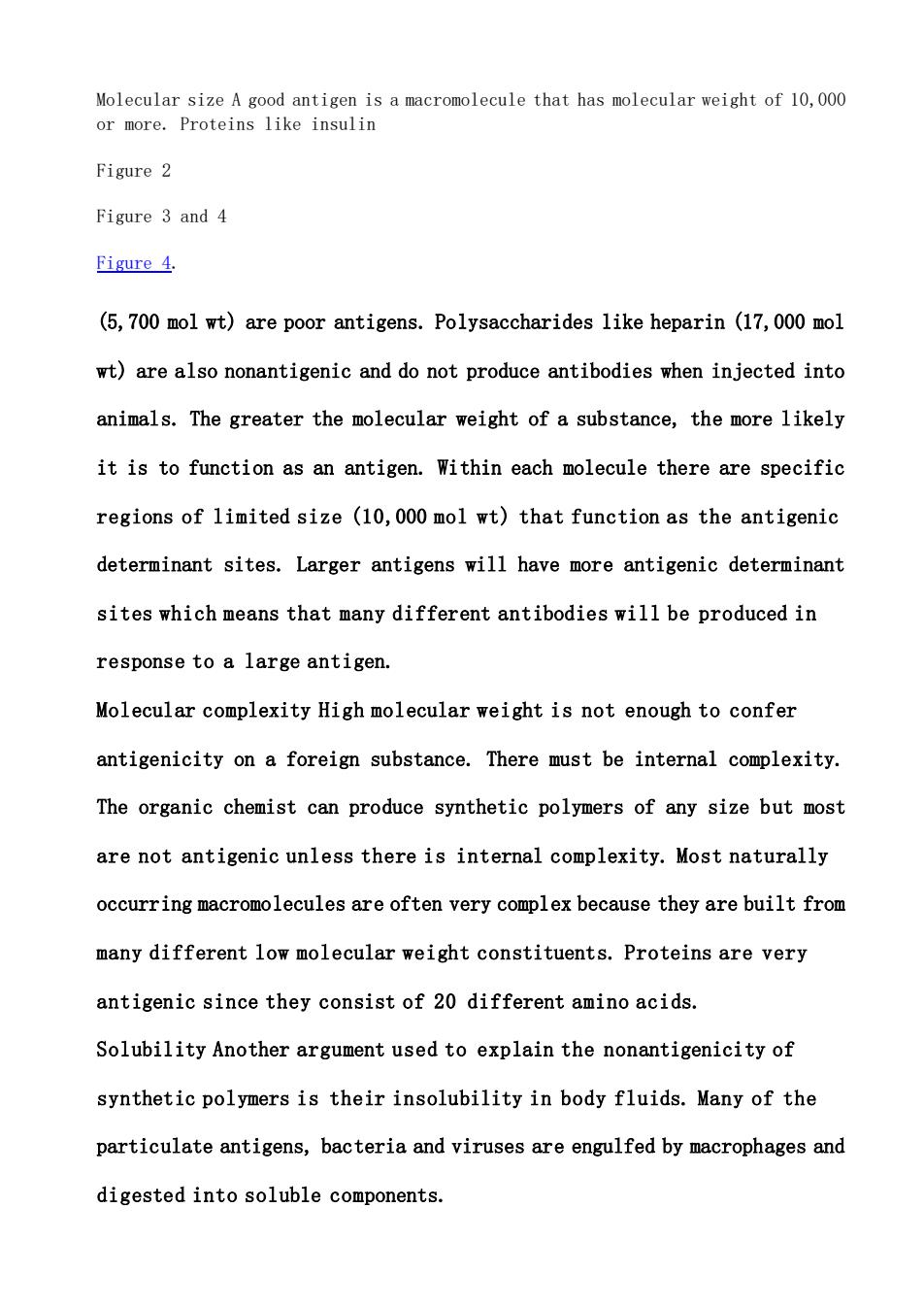正在加载图片...

Molecular size A good antigen is a macromolecule that has molecular weight of 10,000 or more.Proteins like insulin Figure 2 Figure 3 and 4 Figure 4. (5,700 mol wt)are poor antigens.Polysaccharides like heparin (17,000 mol wt)are also nonantigenic and do not produce antibodies when injected into animals.The greater the molecular weight of a substance,the more likely it is to function as an antigen.Within each molecule there are specific regions of limited size (10,000 mol wt)that function as the antigenic determinant sites.Larger antigens will have more antigenic determinant sites which means that many different antibodies will be produced in response to a large antigen Molecular complexity High molecular weight is not enough to confer antigenicity on a foreign substance.There must be internal complexity The organic chemist can produce synthetic polymers of any size but most are not antigenic unless there is internal complexity.Most naturally occurring macromolecules are often very complex because they are built from many different low molecular weight constituents.Proteins are very antigenic since they consist of 20 different amino acids. Solubility Another argument used to explain the nonantigenicity of synthetic polymers is their insolubility in body fluids.Many of the particulate antigens,bacteria and viruses are engulfed by macrophages and digested into soluble components Molecular size A good antigen is a macromolecule that has molecular weight of 10,000 or more. Proteins like insulin Figure 2 Figure 3 and 4 Figure 4. (5,700 mol wt) are poor antigens. Polysaccharides like heparin (17,000 mol wt) are also nonantigenic and do not produce antibodies when injected into animals. The greater the molecular weight of a substance, the more likely it is to function as an antigen. Within each molecule there are specific regions of limited size (10,000 mol wt) that function as the antigenic determinant sites. Larger antigens will have more antigenic determinant sites which means that many different antibodies will be produced in response to a large antigen. Molecular complexity High molecular weight is not enough to confer antigenicity on a foreign substance. There must be internal complexity. The organic chemist can produce synthetic polymers of any size but most are not antigenic unless there is internal complexity. Most naturally occurring macromolecules are often very complex because they are built from many different low molecular weight constituents. Proteins are very antigenic since they consist of 20 different amino acids. Solubility Another argument used to explain the nonantigenicity of synthetic polymers is their insolubility in body fluids. Many of the particulate antigens, bacteria and viruses are engulfed by macrophages and digested into soluble components